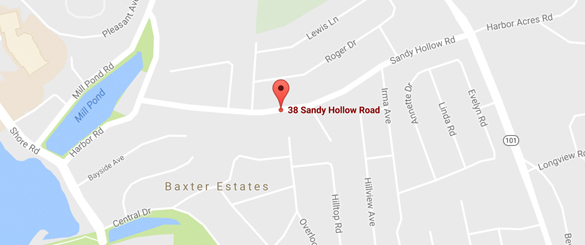Billing FAQs
Is there a “grace period” for payments?
There is no grace period. In keeping with New York State Town Law, the due date indicated on your bill is the absolute deadline.
What is the average bill?
Each consumer’s usage is determined by different variables, such as the number of people living in the home, size of lawn, size of house, etc. For this reason, we are unable to give a meaningful average.
Why is this bill higher than the last bill I received?
Many factors contribute to fluctuations in your water bill:
Weather fluctuations – Water consumption changes from one season to the next. For a more accurate comparison, examine bills from corresponding periods, for example 2022 vs. 2021.
Have living arrangements changed? Water consumption will increase if there are more people living in the residence.
Check for leaks. Dripping faucets inside and outside are obvious sources, but look for other less visible signs as well. Start in the bathroom. Listen for hissing noises around the toilet, which indicate a shut-off valve is leaking.
How do I detect a leak?
There are many ways to determine if you have a water leak on your property or in your house. Look at the flow indicator (red triangle) on your water meter. If it’s moving and no water is on in your home, you have a leak. Look for signs of pooling around sprinkler heads. Are the faucet heads dripping? An outside hose or faucet mistakenly left dripping away can waste thousands of gallons of water over the course of the summer.
Check inside sinks and faucets for drips. Check your toilet. Do you have to jiggle the handle to stop it from running? Most toilet leaks occur at the overflow pipe or at the plunger ball inside the tank. To locate a toilet leak, take the tank lid off and flush. The water level should come up to about a half-inch or so below the overflow pipe. Adjust the float level control screw, if necessary, so the valve shuts off the water at that level. If the valve itself is leaking, you may need a plumber to fix it.
To detect a silent leak in your toilet, you can test it by putting drops of food coloring in the tank (or you may call our office for leak detector tablets). Don’t flush anywhere from 5 to 60 minutes, keep checking the bowl to see if the colored water shows up in the bowl, if it does the tank is leaking. If you do suspect a leak we recommend calling a plumber for assistance.
Why do I still receive a water bill even if no water is being used?
Even if there is no water consumption you will still receive a minimum bill. This is because your water service is connected to the District’s main water supply system.





